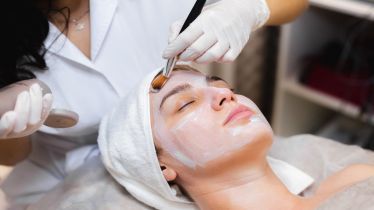India’s skincare industry has experienced a phenomenal growth trajectory, reaching a market size of US$ 2,933.7 million in 2023. With an anticipated compound annual growth rate (CAGR) of 14.6%, the industry is set to expand from US$ 3,310.5 million in 2024 to an impressive US$ 12,934.2 million by 2034. This rapid expansion underscores the increasing demand for skincare products among Indian consumers. However, as the industry grows, the importance of ethical practices becomes paramount to ensure sustainable and responsible growth.
Dr. Manan Mehta of Avya Skin Clinic, who was recently honoured with the Dr. APJ Abdul Kalam Award, says that although this industry is growing well, its future will depend on ethical practices. For instance, in 2022, it was estimated that around 70% of beauty products tested contained harmful chemicals, raising health concerns. Additionally, reports have shown that 50% of raw materials used in the industry were sourced unethically, contributing to environmental degradation and unfair labour practices.
Consumer Awareness and Demand for Transparency
In recent years, consumers have become more conscious of the ingredients and processes involved in the products they use. The rise of social media and the ease of access to information have empowered consumers to make informed choices. They are now more likely to favour brands that are transparent about their ingredients, sourcing practices, and manufacturing processes.
Ethical practices in the skincare industry involve not just the end product but also the entire supply chain. This includes sustainably sourcing raw materials, ensuring fair wages and safe working conditions for labourers, and minimizing environmental impact. Brands that embrace these practices are likely to build stronger trust and loyalty among consumers, ultimately driving long-term success.
Sustainability and Environmental Impact
The skincare industry has a significant environmental footprint, from the extraction of raw materials to the disposal of packaging. Ethical brands prioritise sustainable sourcing, opting for ingredients that are harvested responsibly and do not deplete natural resources. They also invest in eco-friendly packaging solutions to reduce plastic waste and promote recycling. As the industry grows, the cumulative impact on the environment can be substantial. Brands that adopt sustainable practices can mitigate this impact, contributing to the preservation of biodiversity and natural habitats. This is especially crucial in a country like India, where diverse ecosystems play a vital role in maintaining ecological balance. “Globally, voices are being raised about the environment in every sector. Our industry cannot remain aloof from it. Environmental best practices in the skincare industry are crucial to minimise ecological damage and preserve biodiversity. They ensure sustainable sourcing of ingredients and reduce waste, benefiting both the environment and future generations,” adds Dr. Manan Mehta.
Animal Testing and Cruelty-Free Products
The global movement against animal testing has gained significant momentum, with many consumers advocating for cruelty free products. Ethical skincare brands in India can set themselves apart by committing to cruelty free practices and obtaining certifications from recognised oalignsations. Incorporating alternative testing methods, such as in-vitro testing and computer modeling, not only aligns with ethical standards but also positions brands as pioneers in scientific innovation. By eliminating animal testing, the skincare industry can ensure that product development does not come at the cost of animal welfare.
Regulatory Compliance and Ethical Marketing
Adhering to regulatory standards is a fundamental aspect of ethical business practices. In India, skincare brands must comply with guidelines set by regulatory bodies such as the Bureau of Indian Standards (BIS) and the Central Drugs Standard Control Organization (CDSCO). These regulations ensure that products are safe for consumers and meet quality standards. Ethical marketing practices are equally important. Brands must avoid making false claims or using misleading advertising to attract consumers. Transparent communication about product benefits, ingredients, and potential side effects builds credibility and trust. The projected growth of India’s skincare industry presents both opportunities and responsibilities. As the market expands, ethical practices will play a crucial role in shaping the industry’s future.
